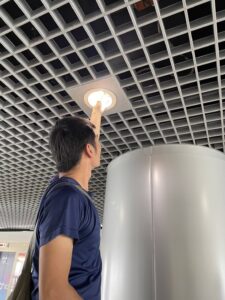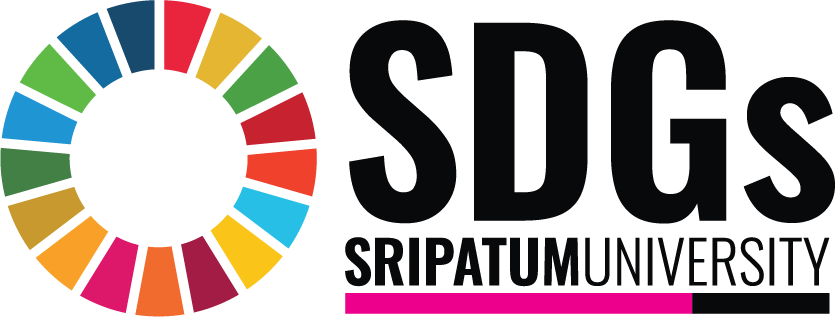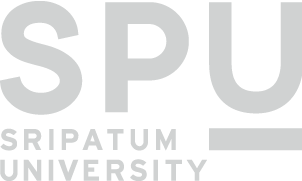
Sripatum University (SPU) has taken a major leap in its sustainability mission by launching a strategic initiative to identify and reduce energy wastage across its campuses. The project, led by the Office of Facilities, focuses on optimizing energy use in three key systems: air conditioning, lighting, and electronic infrastructure. With air conditioning accounting for 70% of total energy use, SPU has prioritized innovative technologies to monitor, control, and reduce unnecessary consumption, contributing directly to SDG 7 (Affordable and Clean Energy), particularly sub-goal 7.2.5 – the regular review of energy wastage.
To combat energy inefficiencies, SPU deployed real-time monitoring and automated control systems for HVAC operations. These systems help identify issues like refrigerant leaks or incorrect temperature settings, enabling prompt maintenance and significant energy savings. Furthermore, smart motion sensors and LED lighting upgrades in classrooms and offices contribute to reducing lighting energy, which constitutes 20% of total consumption. The remaining 10% — stemming from elevators and computer systems — is managed through policy-driven power-off protocols during off-hours, with strong alignment to SDG 12.2.4 (landfill and recycling reduction) and SDG 13.2.1 (tracking of low-carbon energy use).
SPU’s commitment doesn’t stop at technical solutions. The university fosters a culture of sustainability through education and engagement. Campaigns to raise awareness among students and staff, combined with training on sustainable energy practices, reinforce the values of SDG 4.3.5 (public policy on inclusive lifelong learning), SDG 11.4.1 (targets for greener commuting), and SDG 17.4.1 (university-wide commitment to SDG education). These efforts demonstrate SPU’s multi-SDG strategy by integrating energy management with lifelong learning and civic responsibility.
This initiative also links with broader infrastructure and innovation goals. By upgrading to intelligent systems and establishing policy frameworks, SPU supports SDG 9.4.1 (industry-funded research income) and SDG 8.2.1 (living wage and staff welfare), reinforcing the importance of holistic operational sustainability. The project embodies the essence of SDG 16.2.5 (policy on corruption, bribery, and crime) through transparent energy tracking, and SDG 6.3.4 (water-efficient building standards) by linking energy with building efficiency.
With its integrated approach to monitoring, action, and awareness, SPU demonstrates that managing energy isn’t just about cost—it’s about climate, community, and a commitment to a better tomorrow. The university stands as a national model in aligning higher education with global sustainability goals.
ประสิทธิภาพใน 3 ระบบหลัก ได้แก่ ระบบปรับอากาศ ระบบไฟฟ้าแสงสว่าง และระบบอุปกรณ์อิเล็กทรอนิกส์ ซึ่งระบบปรับอากาศคิดเป็น 70% ของการใช้พลังงานทั้งหมด จึงถูกยกระดับให้เป็นเป้าหมายสำคัญในการปรับปรุงด้วยเทคโนโลยีอัจฉริยะ เพื่อลดการสูญเสียพลังงาน สอดคล้องกับ SDG 7 (Affordable and Clean Energy) โดยเฉพาะเป้าหมายย่อย 7.2.5 ในการประเมินการสูญเสียพลังงานอย่างสม่ำเสมอ
SPU ได้ติดตั้งระบบตรวจสอบแบบเรียลไทม์และระบบควบคุมอัตโนมัติในระบบ HVAC เพื่อวิเคราะห์การรั่วของน้ำยา หรือการตั้งค่าอุณหภูมิที่ไม่เหมาะสม ทั้งยังปรับเปลี่ยนหลอดไฟเป็นระบบ LED และติดตั้งเซ็นเซอร์ตรวจจับการเคลื่อนไหวในพื้นที่ต่าง ๆ ซึ่งช่วยลดพลังงานในระบบแสงสว่างที่มีสัดส่วน 20% ได้อย่างมีนัยสำคัญ ส่วนระบบอื่น ๆ เช่น ลิฟต์และอุปกรณ์คอมพิวเตอร์ที่มีการใช้พลังงานราว 10% ได้รับการจัดการผ่านนโยบายปิดระบบอัตโนมัติในช่วงเวลานอกการใช้งาน โดยแนวทางเหล่านี้ยังสอดคล้องกับ SDG 12.2.4 (นโยบายลดขยะฝังกลบ), SDG 13.2.1 (การติดตามพลังงานคาร์บอนต่ำ)
นอกจากการบริหารด้านเทคนิคแล้ว SPU ยังให้ความสำคัญกับการสร้างวัฒนธรรมด้านความยั่งยืนในหมู่นักศึกษาและบุคลากร ผ่านการรณรงค์และการอบรมด้านการใช้พลังงานอย่างมีจิตสำนึก ซึ่งส่งเสริมเป้าหมาย SDG 4.3.5 (นโยบายการเรียนรู้ตลอดชีวิตแบบครอบคลุม), SDG 11.4.1 (เป้าหมายการเดินทางที่เป็นมิตรต่อสิ่งแวดล้อม), และ SDG 17.4.1 (ความมุ่งมั่นของมหาวิทยาลัยต่อการศึกษาด้าน SDGs) โดยเฉพาะ
นอกจากนี้ โครงการยังสนับสนุนเป้าหมายด้านนวัตกรรมและโครงสร้างพื้นฐาน ได้แก่ SDG 9.4.1 (รายได้วิจัยจากอุตสาหกรรม), SDG 8.2.1 (สวัสดิการและความเป็นธรรมแก่พนักงาน) รวมถึง SDG 16.2.5 (นโยบายต่อต้านคอร์รัปชัน) ผ่านระบบติดตามพลังงานอย่างโปร่งใส และ SDG 6.3.4 (มาตรฐานอาคารประหยัดน้ำ) ด้วยการเชื่อมโยงประสิทธิภาพการใช้พลังงานกับการออกแบบอาคาร
ด้วยวิสัยทัศน์แบบบูรณาการในการตรวจสอบ การลงมือปฏิบัติ และการสร้างความตระหนัก มหาวิทยาลัยศรีปทุมจึงยืนหยัดในฐานะต้นแบบของประเทศในการสร้างระบบการจัดการพลังงานที่ไม่เพียงลดต้นทุน แต่ยังสร้างอนาคตที่ยั่งยืนให้กับชุมชนและโลกในระยะยาว


